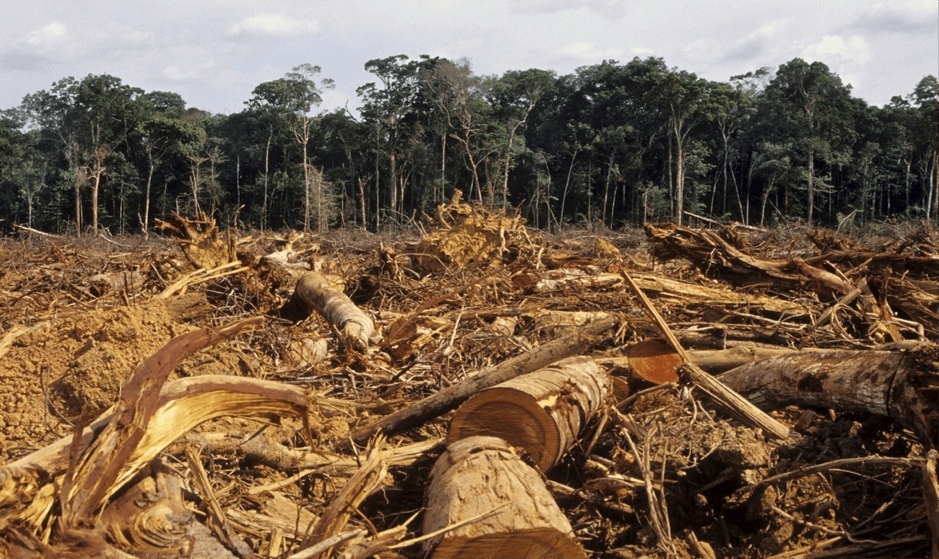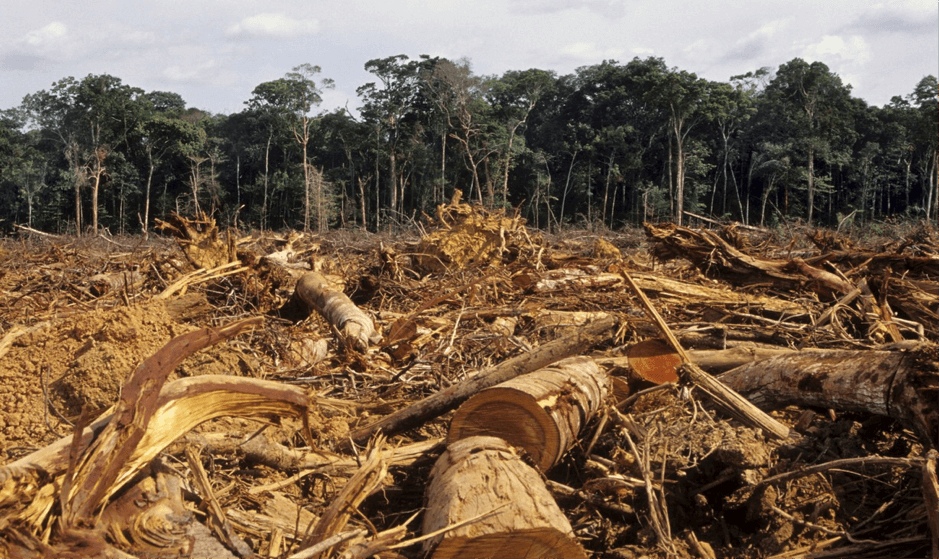It is projected that unprecedented deforestation would continue in developing countries, especially as globalization of the world economy increases (Kaplan & Schulhofer‐Wohl, 2017). The literature demonstrates that the earth is unable to keep up in the struggle to regenerate from the demands humans place on it - as in every second, a parcel of rainforest, the size of a football field disappears, among other threats (Najam, Runnalls & Halle, 2016; Ostrom & Nagendra, 2006; Wilson, 2017). Against this backdrop, global attention has been focused on issues related to environmental sustainability especially in developing countries (Najam, Runnalls & Halle, 2016). Locally, the policy thrust of the Nigerian government since colonialism[1] had been to manage forests on sustained yield principles (Egboh, 1985; Onyekwelu, Mosandl & Stimm, 2008). Accordingly, sustainable forest-management had been recognized as an indispensable duty for communities and governments in order to achieve environmental health and sustainable development (Carley & Christie, 2017). Sustainable forest-management reflects the practice of maintaining and enhancing the long-term health of forest ecosystems for the benefit of all living things while providing environmental, economic, social, and cultural opportunities for present and future generations (Carley & Christie, 2017).


FOTOGRAFÍA: DEFORESTATION IN BOKI, CROSS RIVER STATE, NIGERIA [2]
In a 2015 study[3] that investigated the relevance of indigenous spiritual knowledge involving 459 forest-dependent households in southern Nigeria; spiritual beliefs and practices were found useful not only in forest-management but also in the social and economic progress of communities. Findings acknowledged societies are relying on informed intuition and induction that spiritual capital offers rather than on discrete, measurable know-hows of technical and financial capital to scale human cooperation in the solving of environmental problems. The spiritual capital was found to reside in dutiful networks among Catholic and Pentecostal women and youth groups, striving to defend forestlands as ‘a duty unto God’.[4] Consequently, a consciousness that perceives free-riding of forest-resources as violence is building, thereby consolidating understanding that ‘damage to the forest, is damage to long-term sources of livelihood’. The underlying principle of this forest-management praxis is to ‘gain’ rather than to ‘restrain’ from accessing forest resources. The spiritual capital in this way is resonating the people’s allegiance to ideals that foster higher trust in conserving community forestlands. Hence, the spiritual capital represents a sacred asset with which community members mobilizes themselves to willingly cooperate to ‘preach salvation and save the earth from wickedness’. It is the leading carrier of deep moral and cultural values, strengthening self-enforcement of forest-conservation rules; thereby reducing the cost of formal enforcement by governments and non-governmental organizations. While there might be other forms of spiritual beliefs and practices in Nigeria that may not support sustainable forest-management; it is recommended that forest-conservation programs and activities of religious groups should be supported and linked with objectives of sustainable development. In this way, governments would concentrate on good governance and social services provisioning, opening up space for the real custodians of forests – individuals, families, religious bodies and traditional units – to provide leadership in forest conservation.
[1] Colonial Nigeria was the area of West Africa ruled by the British in the 19th and 20th centuries. Lagos was invaded by British forces in 1851 and formally annexed in 1861. In 1901, Nigeria became a British protectorate. The small Lagos Colony was merged with the Southern Nigeria Protectorate to form a new Colony of Southern Nigeria in 1906. In 1914, the Southern Nigeria Protectorate was merged with the Northern Nigeria Protectorate to form the Colony and Protectorate of Nigeria. Colonialism lasted until 1960 when Nigeria gained political independence.
[3] Odok, G.E. (2015). Indigenous knowledge for forest-management and climate adaptation in forest-dependent Cross River, Nigeria. Unpublished doctoral thesis. University of Ibadan, Nigeria.
[4] This position reinforces Adam Smith’s recognition of the role of moral sentiments, and that of the Nobel Prize winning economic historian, Douglas North, who showed that culture play a key role in economic progress of societies.
References
Carley, M., & Christie, I. (2017). Managing sustainable development. Routledge.
Egboh, E. (1985). Forestry policy in Nigeria, 1897-1960. Ibadan: University of Nigeria Press.
Kaplan, G., & Schulhofer‐Wohl, S. (2017). Understanding the long‐run decline in interstate migration. International Economic Review, 58(1), 57-94
Najam, A., Runnalls, D., & Halle, M. (2016). Environment and Globalization: Five Propositions (2010). The Globalization and Environment Reader, 94.
Onyekwelu, J., Mosandl, R. & Stimm, B. (2008). Tree species diversity and soil status of primary and degraded tropical rainforest ecosystems in south-western Nigeria. Journal of Tropical Forest Science, 193-204.
Ostrom, E., & Nagendra, H. (2006). Insights on linking forests, trees, and people from the air, on the ground, and in the laboratory. Proceedings of the national Academy of sciences, 103(51), 19224-19231.
Wilson, E. O. (2017). Biophilia and the conservation ethic. In Evolutionary perspectives on environmental problems (pp. 263-272). Routledge.
Fecha de publicación: 07/09/2018